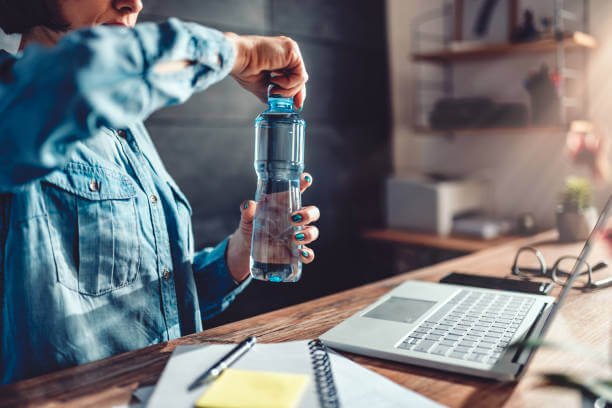How to Improve Your Water Quality for Better Health
Water is important for life on earth. It should be of the best quality for good health. Poor quality of water causes different health problems from minor illnesses to severe ones. If we improve the quality of water, we can address a variety of contaminants and pollutants that problematizes the cleanliness of the water. Following are some of the tips that can help you to improve the water quality so that you can stay healthy-
Steps:
Regular testing
It is required to identify any contaminants or pollutants in your water supply. We can perform a professional water test by using a home testing kit.
Install a water filtration system
The market offers a variety of water filtration systems, including reverse osmosis, activated carbon filters, and UV light purifiers. Select the system that best meets your requirements and budget.
Invest in a water-purifying pitcher
A water-purifying pitcher is a simple and cheap way to remove chlorine, lead, and other contaminants from your drinking water.
Avoid drinking water from plastic bottles
Plastic bottles are comprised of chemicals that add leach to the water inside them. It affects the quality of water and is also harmful to our health. We can use glass or stainless-steel containers instead of plastic bottles.
Reduce your use of household chemicals
cleaning agents and personal care products that can contaminate your water supply. Reduced use of them can help improve water quality.
You can improve the quality of your water and protect your health by following these steps. Remember to test your water on a regular basis to ensure that it is safe to drink.
Understanding the Importance of Water Quality for Health
The physical, chemical and biological properties of water are referred to check the quality of water. These factors also determine the water suitability of different sources. Water is used for food preparation, drinking, and hygiene, these reasons are most critical for human health and get affected by the quality of water.
Contaminated water can spread diseases like cholera, typhoid, and dysentery, as well as cause long-term health issues like cancer, liver and kidney damage, and developmental problems. It is critical to test and monitor water sources on a regular basis to ensure they meet the standards set by health organizations, as well as to treat water to remove harmful contaminants.
To maintain good water quality, it is critical to protect water sources from pollutants such as chemicals, waste, and sewage. This can be accomplished by implementing proper wastewater treatment, enforcing industrial discharge regulations, and reducing agricultural chemical use.
Identifying the Contaminants in Your Water Supply
It is critical to identify contaminants in your water supply to ensure the safety and quality of your drinking water. Several common contaminants that can be found in water include:
- Pesticides, herbicides, industrial chemicals, and heavy metals such as lead and mercury are examples of chemical contaminants.
- Bacteria, viruses, and parasites can all cause illnesses such as dysentery and cholera.
- Sediment, dirt, and particles are examples of physical contaminants that can affect the appearance, taste, and odor of water.
- Radioactive elements such as radium and uranium are examples of radiological contaminants.
If your source of water is private wells, it gets utterly important to get the quality of water checked. As it is not regulated by any set authority, it may be possible that it can be contaminated as the water remains still in place.
When contaminants in your water supply are identified, you can take steps to treat or remove them. It will ensure that you consume safe and clean water.
Choosing the Right Water Filtration System
The type of contaminants present in water decides the type of filtration method to be used. Here are some factors to consider when choosing a filtration system:
- Type of Contaminants: Different filtration systems are designed to remove specific contaminants, such as chemicals, minerals, or microbes. It is important to have your water tested to determine the contaminants present and choose a filtration system that is designed to remove those specific contaminants.
- Filtration Technology: Different filtration technologies, such as activated carbon, reverse osmosis, and ultraviolet light, are used for removing different types of contaminants.
- Capacity: Consider the size of your household and how much water you need to be filtered. Choose a system with the appropriate capacity to meet your needs.
- Cost: Consider the cost of the filtration system, as well as the cost of maintenance and replacement filters.
- Ease of Use: Consider the ease of installing and maintaining the filtration system, as well as the availability of replacement filters.
It is also a good idea to research different brands and read reviews from other users to determine the quality and reliability of the filtration system you are considering.
Maintaining Your Water Filtration System Regularly
Regular maintenance of your water filtration system is essential to ensure that it continues to effectively remove contaminants and provide clean, safe drinking water. Here are some steps to take to maintain your water filtration system:
- Change filters: Regularly changing the filters in your filtration system is the most important step in maintaining its effectiveness. Refer to the manufacturer’s guidelines for the recommended frequency of filter changes.
- Clean the system: Regular cleaning of your filtration system is important to remove any build-up of impurities and ensure that it is working properly. Follow the manufacturer’s guidelines for cleaning the system.
- Monitor water quality: Regularly testing your water quality will help you determine if your filtration system is effectively removing pollutants. You can have your water tested by a certified laboratory or use a home testing kit.
- Repair any leaks: Leaks can allow unfiltered water to enter the system and reduce its effectiveness. Regularly check your system for leaks and have any leaks repaired promptly.
- Store filters properly: Store any replacement filters in a cool, dry place to prevent them from becoming contaminated before use.
By following these steps, you can maintain your water filtration system and ensure that it continues to provide clean, safe drinking water for your family.

Making Simple Changes to Your Daily Water Habits
Making small changes to your daily water habits can help improve the quality of the water you drink and reduce waste. Here’s how:
Drink more water
Aim to drink at least 8 glasses of water per day to stay hydrated and maintain good health. Staying hydrated is important for overall health and well-being, and drinking enough water can help prevent a variety of health problems.
Use a reusable water bottle
By using a reusable water bottle, you can reduce waste and have access to clean water throughout the day. Choose a water bottle made of stainless steel or glass to avoid any potential health concerns with plastic.
Install a water filtration system
Installing a water filtration system at home can improve the taste and quality of your drinking water, as well as reduce the need for bottled water. There are many different types of filtration systems available, so choose one that fits your needs and budget.
Fix any leaks
Leaks in your water system can allow unfiltered water to enter and reduce the effectiveness of your filtration system. Regularly check for leaks and have them repaired promptly to ensure that you are getting the best possible water quality.
By making these simple changes to your daily water habits, you can improve the quality of water you drink and reduce waste while helping to protect the environment and your health.
Understanding the Benefits of Alkaline Water
Alkaline water has a higher pH level with respect to tap water. It ranges from 7.5 to 9.5. Scientists have claimed the advantages of alkaline water. It includes improved hydration levels, the ability to neutralize acidity in the body, better absorption of minerals in the body, better skin health, and provision of antioxidants in the body.
We should note that more research is needed to prove these outcomes. Is important to keep in mind that everyone’s body is unique and what works for one might not work for another. It is recommended to speak to a healthcare professional before consuming alkaline water. However, in spite of the pH level in the water, it is more important to stay hydrated.
Incorporating Water-Rich Foods into Your Diet for Optimal Hydration
Incorporating water-rich foods into your diet helps you to stay hydrated and fit. It also has some additional benefits. Fruits like watermelon, strawberries, oranges, and cucumbers are all rich in water content. They also help you to reach your daily water intake goals. Eating water-rich fruits provides nutrients and minerals that are vital for our overall health.
By eating these food items, we feel more satisfied and fuller which helps us in weight management. We can also add water-rich foods like carrots, spinach, bell peppers, lettuce, and broth-based dishes into our diet to increase our water intake. These are simple changes to your diet that improves the hydration levels and overall health of individuals.







